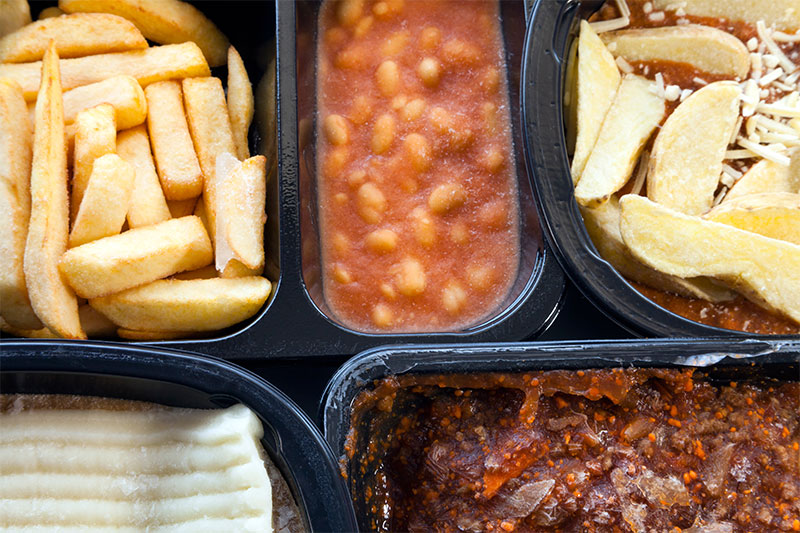Processed food is everywhere, and it’s here to stay. Frozen food, canned food, cured meat, boxed cereal, sweet and savory snacks, and more; processed items make our lives easier.

The problem with processed food is that it’s unhealthy for several reasons. Manufacturers add all types of additives like salt, sugar, and fat to improve the food’s flavors and extend its shelf life. Yet, if you know how to read a label, some processed foods can be part of a healthy lifestyle.
Salt or sodium
Salt is a flavor enhancer and a food preservative, but too much of it increases blood pressure and the risk of heart disease and stroke. Although impossible to avoid altogether, you can definitely avoid processed foods high in sodium.
Any label that states that a product has 1.5g of salt per 100g (or 0.6g sodium) should be avoided. Aim instead for low sodium products with 0.3g of salt or less per 100g (or 0.1g sodium).
Low sodium processed foods can be part of a healthy diet, but there are few of them.
Sugar
After salt, sugar is the most common additive in processed foods. Manufacturers add it even to savory food, like tomato paste, to make it more appealing while adding dozens of unneeded calories to our diets. Sugars and simple carbs have a very limited place in a healthy diet, but everything goes in moderation.
To find out if a store-bought sweet or savory food is right for you, look for the nutritional facts. Avoid if a product has more than 22.5g of total sugars per 100g and prefer products with 5g of total sugars or less per 100g.
Producers might use different terms for sugars like honey, agave syrup or fructose, so monitor them.
Saturated fat
Saturated fat causes cholesterol to build up in your arteries and promotes heart disease and stroke. Many types of food have this type of fat, including cakes, biscuits, sausages, bacon and cheese. Most cooking oils have lots of it, too, like butter, lard, coconut oil and palm oil. Processed food can be alarmingly high in this department.
Avoid any processed food stating more than 5g of saturated fat per 100g. Instead, look for alternatives with 1.5g of saturated fat or less per 100g or mono-unsaturated fat alternatives like food cooked in olive oil.
Total fat
Although saturated fat might be the most dangerous for your health, many processed foods are high in many other fats like trans fats. This means that you should also pay attention to the total fat in a packaged product.
Anything with more than 17.5g of total fat per 100g is high on fat and should be avoided, anything with 3g of fat or less per 100g is a much better alternative.
Nitrites
Properly known as sodium nitrite, this compound is one of the most common food preservatives in processed food. Cured meats, such as bacon, hot dogs, ham, salami, corned beef and paté, have large amounts of the compound.
Nitrites decrease blood pressure, increasing heart rate, and reducing the ability to carry oxygen to your body tissues through the blood. This can cause anything from headaches to vomiting and, in some cases, death.
Avoid any processed food containing nitrites and keep it low on sodium fats and sugar, then you can add it to a healthy diet.
Processed food, a necessary evil?
Processed food is not healthy at all; too much fat, salt, sugar and preservatives, but it does feed a lot of people cheaply. If you make sure you’re staying at the low range in the dangerous compounds above, you’ll probably be fine.
Convenient food is meant to make our lives easier, so enjoy them, never without taking care of your health first.


